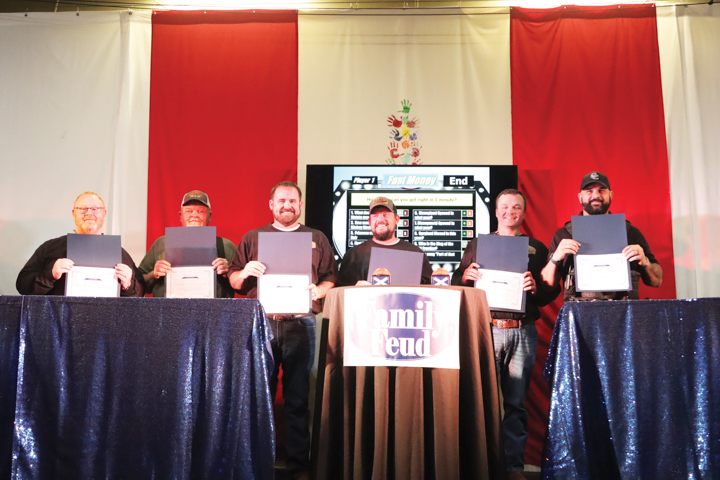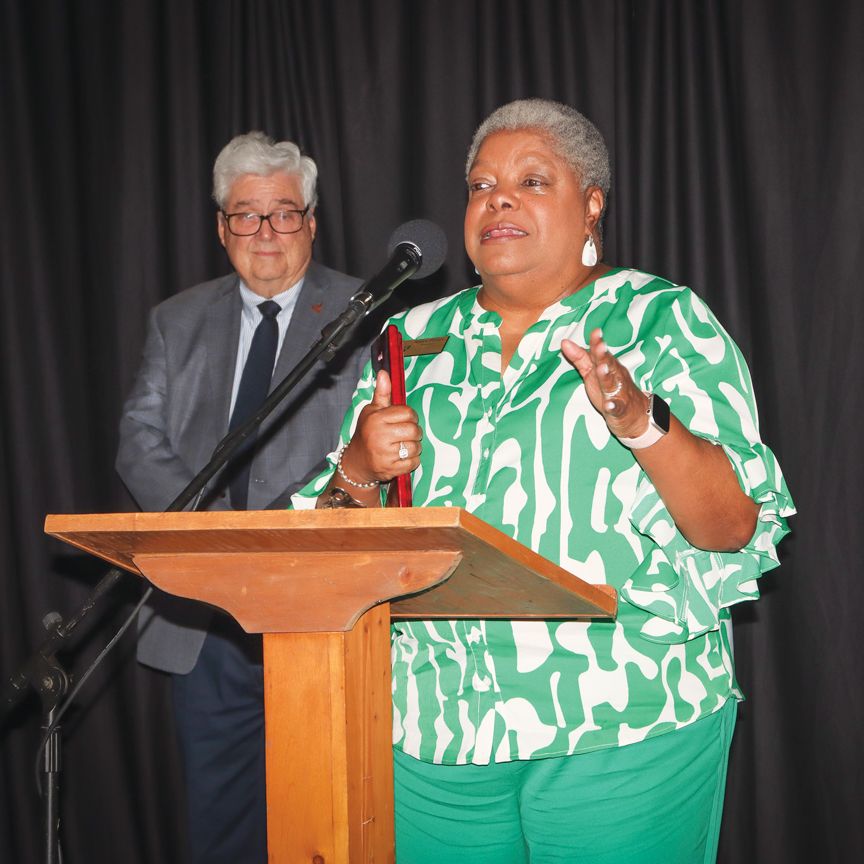Involving kids in an agricultural field day is rarely the priority, but University of Nebraska-Lincoln Extension hoped to change that at a recent event.
Often, farmers let their kids roam the vendors and the booths to score some snacks, candy and even goodies while their parents attend talks on the latest trends in agriculture. UNL Extension’s field day mixed the two groups when it hosted the Science and Ag Family Field Day July 24 with Haskell Agricultural Laboratory in Concord, Neb. The field day, which had prominent talks on the latest dicamba, forage and land pricing issues, also had extension educators host interactive panels for kids.
Starting the day bright and early, education specialists Angela Abts and Megan Taylor hosted dozens of kids in their yellow workshop to detail the newest STEM — Science, Technology, Engineering and Mathematics — programs for kids to enjoy in Nebraska. After Abts showed students how her robotics camps can help build their love for STEM fields, she encouraged the girls in the room to pursue their dreams, no matter what they are.
“We find that girls think a little more different than the boys,” she said.
Abts research has shown that 80 percent of the fastest-growing fields in both the ag industry and in the world require STEM education, and she hopes Nebraska students can be on the forefront of that to push industries such as precision agriculture.
Taylor, who is also a soil specialist and microbiologist with UNL Extension, hosted a hands-on talk about soil. Through demonstrations on how microbes work and using volunteers to show how each group of microbes affects soil health, Taylor was able to explain the most important parts while keeping the kids engaged.
“It’s the best science on the face of the planet because it is literally the face of the planet,” she said during the demonstration.
Later in the afternoon, Sarah Roberts, another Extension educator, and Hanna Pinneo, a conservation education coordinator, joined to show off what they called “weird science” as well as some information for the parents in the room about Project Learning Tree.
When talks weren’t going on, students headed out to the field to get archery lessons, explore small robots, and even get their hands on a cow while Extension specialists explained how production agriculture works. All the while, parents were able to attend key talks on dicamba, managing forage production risks, and learn about a new pest to soybeans — the gall midge.
When the day was winding down, attendees got tours of the laboratory and the nearby Northeast Arboretum where guides told about the species they are trying to conserve.
Teaching science literacy
After lunch at the event, keynote speakers Jenny Keshwani and Erin Ingram detailed how important science literacy is to youth and parents alike. Keshwani is a science literacy specialist with UNL and Ingram is the university’s curriculum development specialist.
Both Keshwani and Ingram told how they were led on a path to STEM fields from unlike means, something they said they hope more young kids and women get to experience.
As precision agriculture gains a foothold and more pieces of technology become readily available to the general public, Keshwani said science literacy will become the most important piece of youth education.
“We need to have a society that is capable of handling those new inventions,” she said. “We need to have a family that is capable of understanding GMOs and organics or even vegan or what the latest thing is.”
The problem is, Ingram said, curiosity is often undervalued in today’s society and is causing students to settle rather than explore. She said that if a student takes a harder class just to explore a new avenue, they are often faced with the threat that lower grades will affect their GPA. If a farmer tries something new, they are often left with less revenue from their crop. She said these are problems that can be overcome with enough time.
“It’s threatening to things we want to do,” she said.
Ingram said that as smartphones, computers and technology become integrated with everyday life, society will rapidly move out of the information age and into the problem solving age. To get your brain working each morning and set on problem solving, Ingram suggested a small exercise.
“What do you notice and what do you wonder? I encourage you to use it when you’re (doing anything). It’s great because there are no wrong answers. Everyone can wonder about something,” she said.
The science and ag family field day is held each year in different locations. For more information about UNL extension field days, visit https://events.unl.edu/cropwatch/upcoming/





